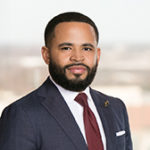While this was a big week for the United States Supreme Court with the confirmation of Associate Justice Amy Coney Barrett, Justice Clarence Thomas’ written statement following the Court’s October 12, 2020, decision in MalwareBytes Inc., v. Enigma Software Group has garnered the most attention from tech companies like Facebook, Twitter, Instagram, Google, and Twitter.
Thomas wrote that the Court should welcome a case that will consider whether the text of Section 230 of the Communications Decency Act “aligns with the current state of immunity enjoyed by Internet platforms.” Section 230 states “no provider or use of an interactive computer service shall be treated as the publisher or speaker of any information provided by another information content provider.” This language granted internet companies and platforms protection from being held liable for statements and content published by their users.
Thomas wrote that the protection provided by Section 230 is far more sweeping than intended and this extension of §230 immunity is “beyond the natural reading of the text.” Thomas seems to argue that an internet company that exercises editorial control over content is a publisher that can be held liable for any content the internet company’s platform carries. Based on Thomas’ statement, a company like Facebook must decide whether it wants to be a distributor with no control over content on a user’s page and enjoy immunity from liability based on that content, or be a publisher that can moderate content on a user’s page and be held liable for that content.
Not only is Thomas’ statement being analyzed by tech giants that drive most of the county’s online user-generated content, but Federal Communications Commission (FCC) Chairman Ajit Pai announced that Thomas’ statement “pointed out that courts have relied upon ‘policy and purpose arguments to grant sweeping protections to Internet platforms’ that appear to go far beyond the actual text of the provision.” Pai also stated that the FCC has the legal authority to interpret Section 230 through a rulemaking proceeding. Pai concluded that “social media companies have a First Amendment right to free speech. But they do not have a First Amendment right to a special immunity denied to other media outlets, such as newspapers and broadcasters.”
Even after election results are announced (hopefully) next week, tech companies can count on continued calls for reforming Section 230 from both parties – including President Donald Trump and former Vice President Joe Biden, who have both called for the repeal of Section 230 and the immunity awarded to internet companies.
Despite the recent attack on Section 230, it is important to recognize that the statute has made it possible for internet platforms to create a massive space for users to openly share their ideas and free expression. Without the protection provided by Section 230, major platform providers could face a wave of vexatious litigation and start-up platform providers could be sued out of existence.
While most Americans are ready for 2020 to end, tech giants may not be looking forward to a future that does not include the protections provided by Section 230, which could transform the internet as users know it today. Regardless of what happens to Section 230, our nation should continue to support innovative ways that allow for the open discussion and free expression of ideas that is not chilled by the threat of litigation.
 Meet Trey
Meet Trey
William “Trey” A.I. McDonald III practices media litigation and complex commercial litigation with a focus on First Amendment, defamation, false advertising, and Lanham Act claims. Trey is a graduate of Morehouse College and The University of Texas School of Law. He also studied at Stanford University as a Political Science Exchange Fellow. In addition to his practice, Trey serves on the OneGoal Houston young professional board and the Sweat Equity Group board of directors, and he enjoys raising money for Houston-area nonprofits that uplift minority communities though his annual One Night event.
The opinions expressed are strictly those of the author and do not necessarily reflect the views of the firm, its clients, or any of its or their respective affiliates. This article is for informational purposes only and does not constitute legal advice.
 Meet Trey
Meet Trey